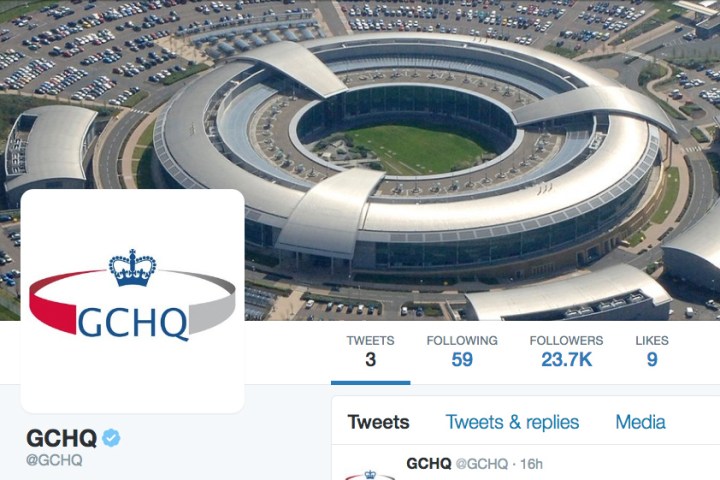
As GCHQ’s Twitter account went live on Monday, the intelligence agency wasted little time in adding MI6 operative James Bond to its “following” list.
As you’d expect, news of its arrival on the social media site was met with a flurry of jokey tweets from users asking why GCHQ wasn’t following them, though, well, it probably is. And likely has been for some time.
Its debut tweet was “Hello, world,” a nod to the basic coding exercise often undertaken by novice programmers.
Hello, world. https://t.co/SROtSsE8KB
— GCHQ (@GCHQ) May 16, 2016
Joining Twitter is part of an effort by the agency to improve its public image following several years of damaging headlines linked to leaks by whistleblower Edward Snowden.
The government agency, which is based about 130 miles north-west of London in a building not unlike Apple’s under-construction “spaceship” campus, said it hopes its presence on Twitter will make GCHQ “more accessible and to help the public understand more about our work.”
It added, “We also want to reach out to the technical community and add our voice to social media conversations about technology, maths, cyber security, and other topics where we have a view.” Followers can also expect tweets about its history, mission outcomes, and job opportunities.
But don’t expect many details, or indeed any, about any of its covert operations. “Some things have to stay secret, sorry,” a spokesperson said. “We won’t be providing intelligence updates or giving away tradecraft.”
GCHQ’s Twitter launch comes a couple of years after its U.S. counterparts hit the social media service. The NSA joined in late 2013 while the CIA, which recently hit the headlines for “live” tweeting the Osama bin Laden raid on the fifth anniversary of his death, arrived in June 2014.
Editors' Recommendations
- Mike Pence’s fly has already amassed 90,000 followers on Twitter
- No Time To Die trailer reveals James Bond’s new villain, gadgets, and 007 rival
- The new 007 is a woman. What does this mean for James Bond’s future?
